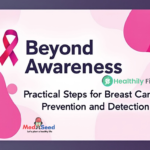Your heart is a vital organ that pumps blood throughout your body. It’s important to keep your heart healthy by eating a healthy diet, exercising regularly, and managing your risk factors for heart disease. So, here I will tell you some tips to improve your heart health
There are also a number of vitamins that can help support heart health. Here are some of the most important vitamins for heart health:
- Folate: Folate is a B vitamin that helps to lower homocysteine levels. Homocysteine is an amino acid that can build up in the blood and damage blood vessels. Folate can be found in leafy green vegetables, fruits, and legumes.
- Vitamin B6: Vitamin B6 helps to convert homocysteine into other amino acids. It can also help to regulate blood pressure. Vitamin B6 can be found in whole grains, meat, poultry, and fish.
- Vitamin B12: Vitamin B12 helps to keep the nervous system healthy and also helps to lower homocysteine levels. Vitamin B12 can be found in meat, poultry, fish, dairy products, and fortified cereals.
- Magnesium: Magnesium is a mineral that helps to regulate blood pressure and heart rhythm. It can also help to prevent the buildup of plaque in the arteries. Magnesium can be found in leafy green vegetables, nuts, seeds, and whole grains.
- Omega-3 fatty acids: Omega-3 fatty acids are a type of fat that has been shown to have many health benefits, including heart health. Omega-3 fatty acids can help to lower blood pressure, reduce inflammation, and prevent the buildup of plaque in the arteries. Omega-3 fatty acids can be found in oily fish, such as salmon, tuna, and mackerel.
In addition to these vitamins, there are other nutrients that are important for heart health, such as potassium, calcium, and fiber. You can get these nutrients by eating a healthy diet that includes plenty of fruits, vegetables, and whole grains.
If you are concerned about your heart health, talk to your doctor. They can help you assess your risk factors for heart disease and recommend a plan to improve your heart health.
Here are some additional tips for improving your heart health:
- Eat a healthy diet. This means eating plenty of fruits, vegetables, and whole grains. It also means limiting your intake of saturated fat, trans fat, and cholesterol.
- Exercise regularly. Aim for at least 30 minutes of moderate-intensity exercise most days of the week.
- Maintain a healthy weight. If you are overweight or obese, losing even a small amount of weight can help to improve your heart health.
- Don’t smoke. Smoking is a major risk factor for heart disease. If you smoke, quitting is the best thing you can do for your heart health.
- Manage your blood pressure. High blood pressure is a major risk factor for heart disease. If you have high blood pressure, work with your doctor to get it under control
- Manage your cholesterol levels. High cholesterol is another major risk factor for heart disease. If you have high cholesterol, work with your doctor to get it under control.
By following these tips, you can help to keep your heart healthy and reduce your risk of heart disease.
Here are some additional resources that you may find helpful:
Resources
Author Profile

- Dr. Manish jainMBBS
Latest entries
 InformationJanuary 7, 2025HMPV Outbreak in India: What You Need to Know
InformationJanuary 7, 2025HMPV Outbreak in India: What You Need to Know GeneralOctober 25, 2024Shattering Stereotypes: Male Breast Cancer
GeneralOctober 25, 2024Shattering Stereotypes: Male Breast Cancer GeneralOctober 25, 2024Beyond Awareness: Practical Steps for Breast Cancer Prevention and Detection
GeneralOctober 25, 2024Beyond Awareness: Practical Steps for Breast Cancer Prevention and Detection GeneralJuly 25, 2023How to Protect Your Eyes from Eye Infections During the Monsoon Season
GeneralJuly 25, 2023How to Protect Your Eyes from Eye Infections During the Monsoon Season

